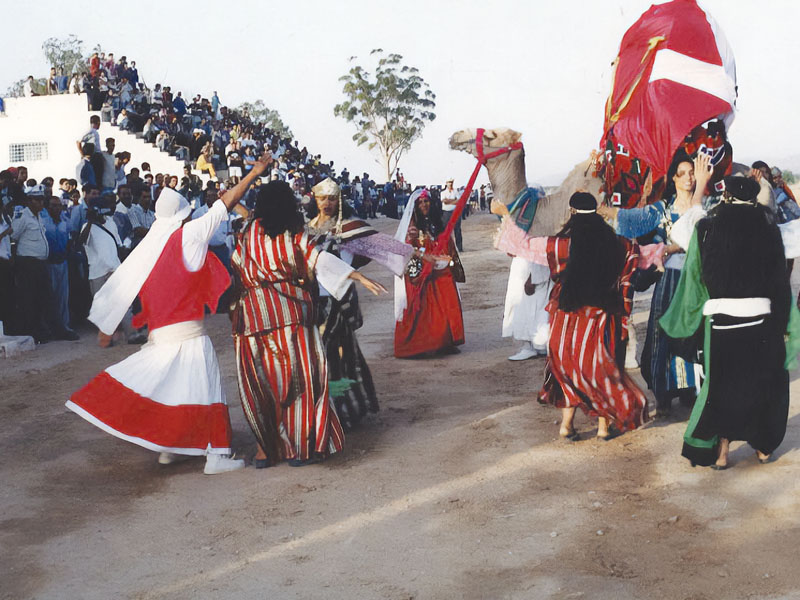Ali Al-Delaiwi Al-Ayyarry: The Knight and the Poet
Issue 9

Ahmed Khaskhoosi (Tunisia)
Other knight-poets also possessed these two dimensions, but Ali Al-Delaiwi can be distinguished from the majority by his poetry, which was specific in terms of its goals and meanings. Some of his poems were related to contests and reflections. Others, in a certain sense, remind the reader of distinguished figures in Arab literature from ancient times, namely Antara Bin Shaddad Al-Ebsy and Malek Bin Al-Raibb Al-Maziny. According to the story, Ali Al-Delaiwi was born in the early Nineteenth Century. He was raised as an orphan in a poor family, and was educated by a tutor until he was able to memorize the Quran. He was able to do this at an early age, which is a testament to his intelligence and prominence. Based on the scarce information available, it seems that the life of Ali Al-Delaiwi was problematic, given that his actions and reactions vary from the requirements of chivalry, on the one hand, to the semimetaphysical side that makes him a sort of “man of honor,” on the other hand. We are told of visions which he claimed to have experienced in his dreams, and we find that it wasn’t long before the visions turned into reality. In this vision, he saw himself as a boy erasing writing boards in a neighboring valley filled with flowing springs. A grave, whitebearded old man saw him. The man took a handful of dirty water and a handful of clean water and asked him, “from which handful would you drink, son?” Ali Al-Delaiwi replied, without hesitation, “from both of them.” Some interpret this to mean that the contents of the one hand represented clarity, purity, piety, godliness, cleanliness and goodness, while the contents of the other hand represented darkness leading to sin and to related love affairs. If one pays attention to the what was reported of him, he finds that Ali Al-Delaiwi’s poetry can be divided into two types. The first type is “verse” and consists of just one or two lines. The second type is poems, which are longer compared to the first type of poetry. Based on the available records, it seems that the poet achieved a number of notable goals in his writing, including satire, pride, and a description of horses. What the reader generally notices, however, is that such goals are listed together, rather than being recorded or listed separately. Thus, the single goal hardly represents a single constructive and moral unit. Instead, we find them throughout many verses, with significant variation in meaning. They include reflections on the state of affairs of people, changes of time and codes of life, including the laws that govern the universe, in general, and the fates of people, in particular..



































































